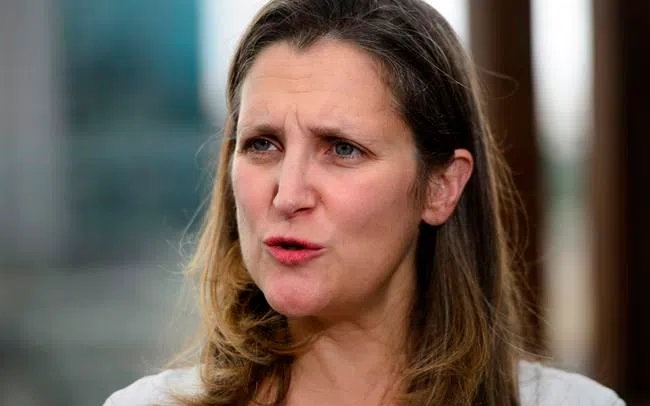
Canada led joint G7 statement condemning Russian aggression in Ukraine: Freeland
BUENOS AIRES, Argentina — Canada has spearheaded a G7 foreign-ministers’ statement that condemns Russian aggression in Ukraine and urges the release of detained sailors, Foreign Affairs Minister Chrystia Freeland says.
The joint communique says the foreign ministers of Canada, France, Germany, Italy, Japan, the United Kingdom and the United States, and the high representative of the European Union, are concerned about Russia’s actions against Ukraine in the Kerch Strait and surrounding waters. On Sunday the Russian coast guard opened fire and seized three Ukrainian vessels, including their crews.
The foreign ministers urge restraint, respect for international law and no further escalation.
They call on Russia to release the detained crew and ships and refrain from impeding lawful passage through the Kerch Strait. The strait separates Crimea — Ukrainian territory Russia seized in 2014 — from the Russian mainland and allows ships to reach Ukrainian ports.
